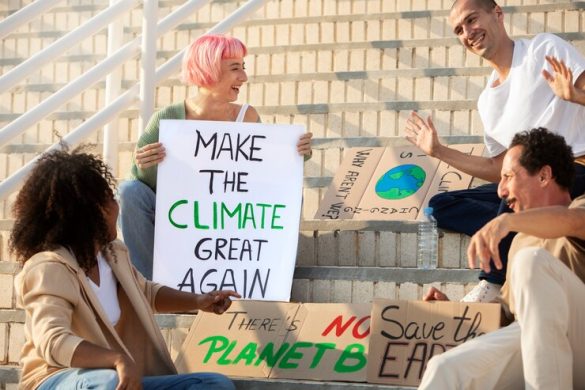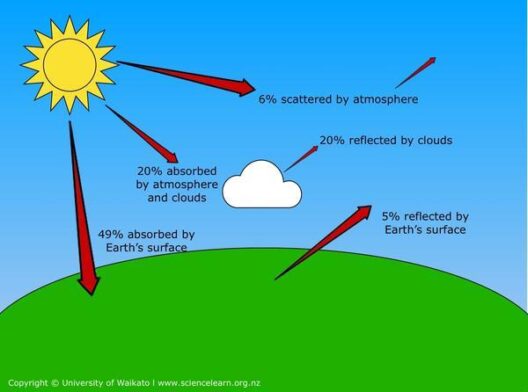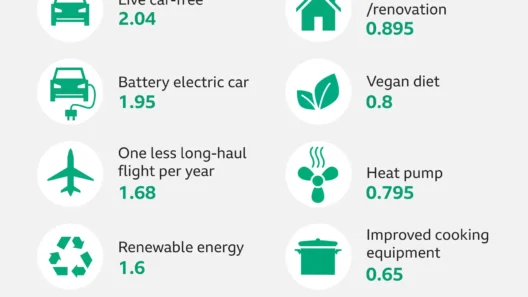Climate change is an existential challenge that requires collective action on a global scale. However, individual contributions can wield significant power in mitigating its impacts. Embracing personal responsibility can spark change—not just on an individual level but also in local and global communities. So, what can you do to help fight climate change? Let’s explore a multifaceted approach that empowers you to make a difference.
In the face of climate change, knowledge is a potent tool. Educating yourself about the complexities of the issue provides a robust foundation for activism. Understanding the science behind greenhouse gases, carbon footprints, and the repercussions of global warming enables informed conversations and decision-making. Dive into reputable resources—documentaries, articles, and studies that elucidate these concepts. By enhancing your awareness, you prepare yourself to address climate-related topics with confidence and authority.
But knowledge must lead to action. One of the most impactful ways to help combat climate change is to re-evaluate your consumption patterns. This involves making deliberate choices about what you buy, how you use resources, and even how you dispose of waste.
Your Energy Consumption: Be an Evangelist of Efficiency
Energy consumption is one of the most significant contributors to climate change. To combat this, consider transitioning to renewable energy sources, such as solar or wind. Investing in solar panels can substantially reduce your household’s carbon footprint and often offers long-term financial savings.
In addition to investing in renewables, prioritize energy efficiency in your daily life. Simple changes, like replacing incandescent bulbs with LED lights or using energy-efficient appliances, can drastically curb energy usage. Moreover, maximize natural light to enhance your living space while minimizing reliance on artificial lighting.
Don’t overlook the importance of conscious heating and cooling practices. Using programmable thermostats can help maintain a comfortable environment with less energy. During colder months, wear warmer clothing instead of cranking up the heat. Similarly, in summer, use fans and natural ventilation before resorting to air conditioning. Small adjustments in behavior can lead to substantial energy savings over time.
Transportation Choices: The Journey Towards Sustainability
Another pivotal area to address is transportation, a key driver of emissions. Riding bicycles, carpooling, using public transport, or even walking short distances significantly reduces your carbon footprint. When possible, opt for electric or hybrid vehicles, which are increasingly becoming viable alternatives to traditional gasoline-powered cars.
In addition, consider rethinking travel habits. Air travel is one of the most carbon-intensive activities one can undertake. Instead of hopping on a plane for a short trip, explore local destinations that can be accessed by car or train. If air travel is unavoidable, contribute to carbon offset programs that fund renewable energy projects to counterbalance emissions generated by your journey.
Food Choices: Sustainably Sourced and Locally Grown
It’s astounding but true: our food choices significantly impact the environment. The agricultural sector is a notable contributor to greenhouse gas emissions, deforestation, and water depletion. By selecting sustainably sourced foods and supporting local farms, you can help nurture the planet. Explore the benefits of a plant-rich diet, minimizing meat consumption, especially red meat, which is known for its high environmental costs.
Shopping at local farmers’ markets or participating in community-supported agriculture (CSA) programs not only reduces the carbon footprint of food transportation but also fosters community resilience and connections. Opting for organic and seasonal produce minimizes the need for chemical fertilizers and pesticides, promoting healthier ecosystems.
The Plastic Dilemma: Reducing Waste Through Conscious Choices
Plastic pollution poses a dire threat to our oceans, wildlife, and ecosystems. To tackle this challenge, begin by minimizing plastic usage in your daily life. Carry reusable bags for shopping, use stainless steel or glass containers, and avoid single-use plastics whenever possible. Consider investing in a water filter to reduce reliance on bottled water.
Moreover, practicing the art of recycling is vital. Understand your local recycling guidelines and take the time to educate friends and family. Participating in or organizing community clean-up events can raise awareness about plastic pollution, encouraging others to adopt sustainable practices.
Advocacy and Community Engagement: Amplifying Your Impact
Personal action alone is essential, but the ripple effects of advocacy magnify the impact. Engage with local environmental organizations, attend community meetings, and voice your concerns to policymakers. Writing letters, signing petitions, or even participating in peaceful demonstrations can help advocate for climate justice.
Moreover, inspire others by leading by example. Share your journey towards sustainability on social media or local forums to spark conversations and allow others to witness the positive changes you’ve implemented. Building a supportive community can catalyze collective action and empower more people to embrace environmentally friendly practices.
Fostering Future Generations: Education for Lasting Change
Educating the younger generation about climate change fosters a culture of sustainability and responsibility. Engage children and adolescents in discussions about environmental issues, encourage them to participate in eco-friendly projects, and guide them in making conscientious choices. Whether it’s planting a garden, recycling, or cleaning up local parks, instilling awareness in youth cultivates lifelong stewards of the environment.
In closing, the battle against climate change is complex and demanding, yet rife with opportunities for individuals to make a significant difference. By re-evaluating consumption patterns, making conscious lifestyle choices, engaging in community advocacy, and educating future generations, everyone can contribute to a more sustainable world. The journey might seem daunting, but each small step serves as a powerful testament to a collective commitment toward a healthier planet. Change begins with you—embrace the challenge and inspire others to join. Together, we can forge a future that not only combats climate change but also celebrates the resilience and beauty of our planet.







